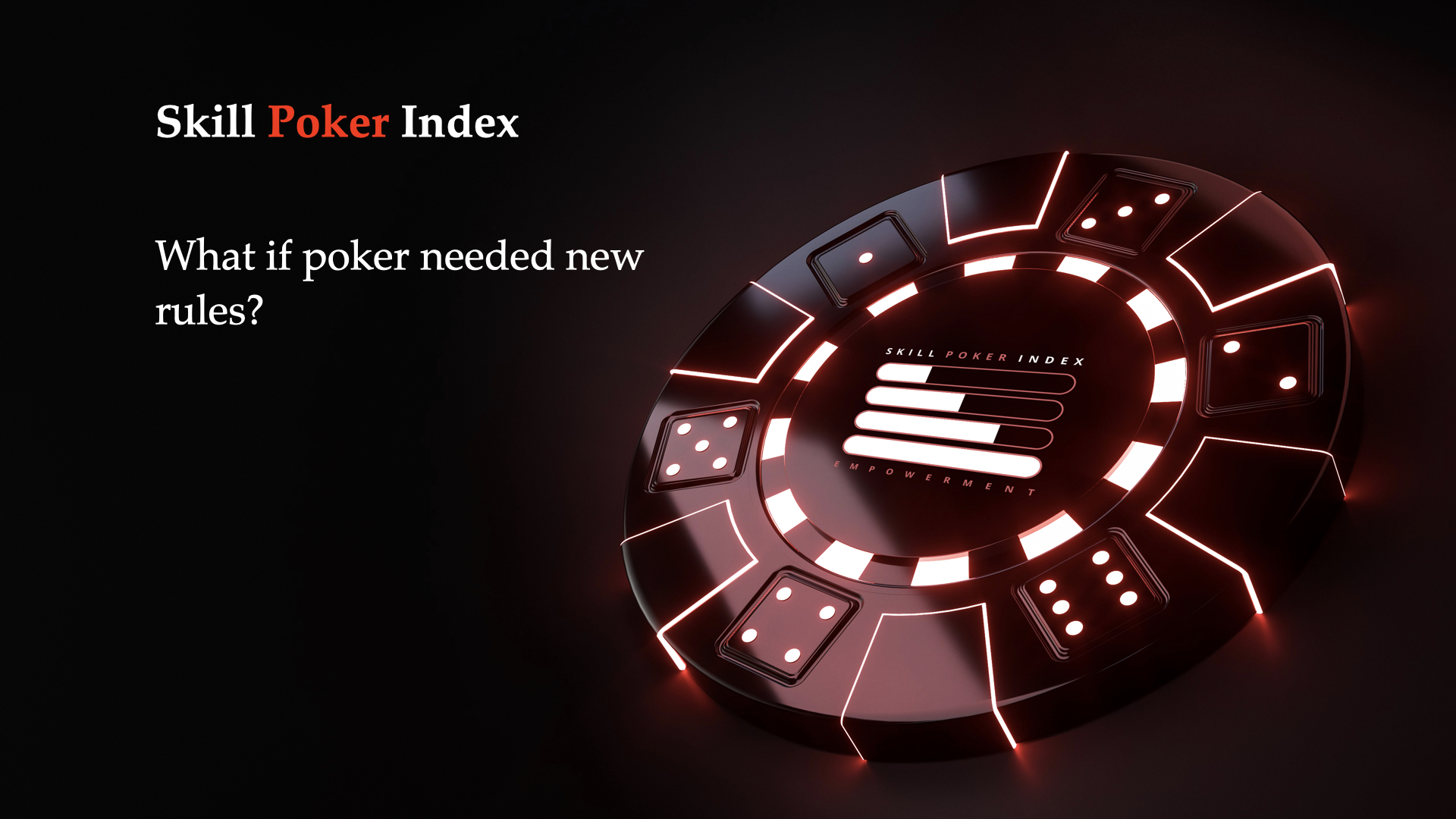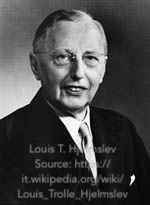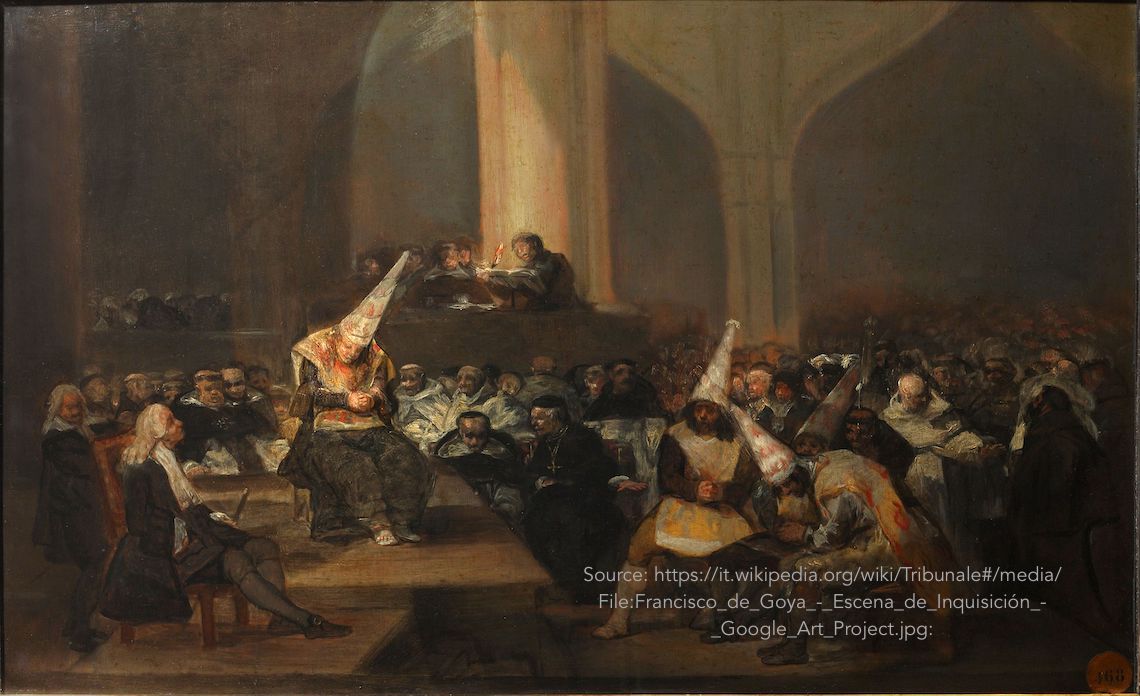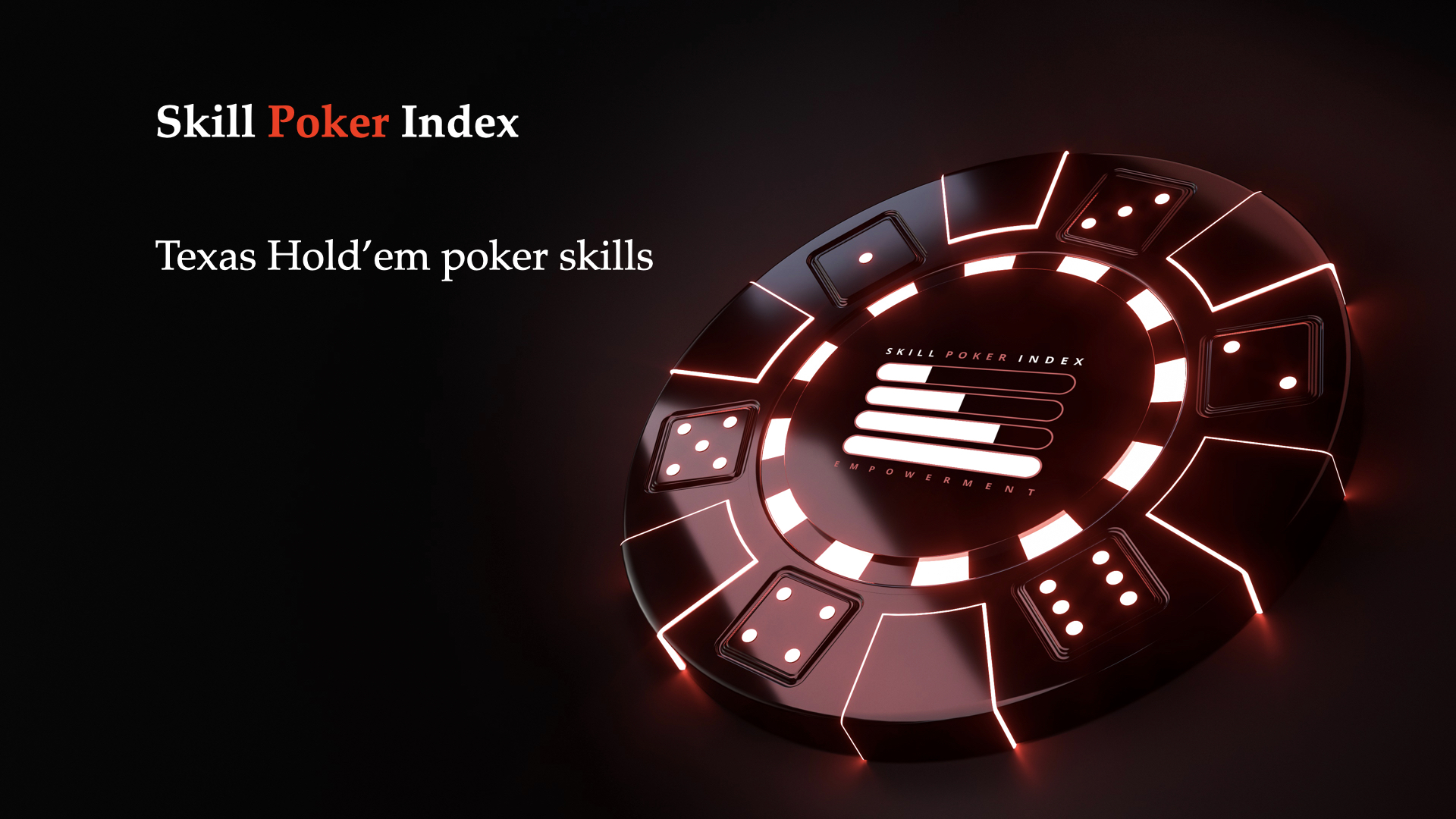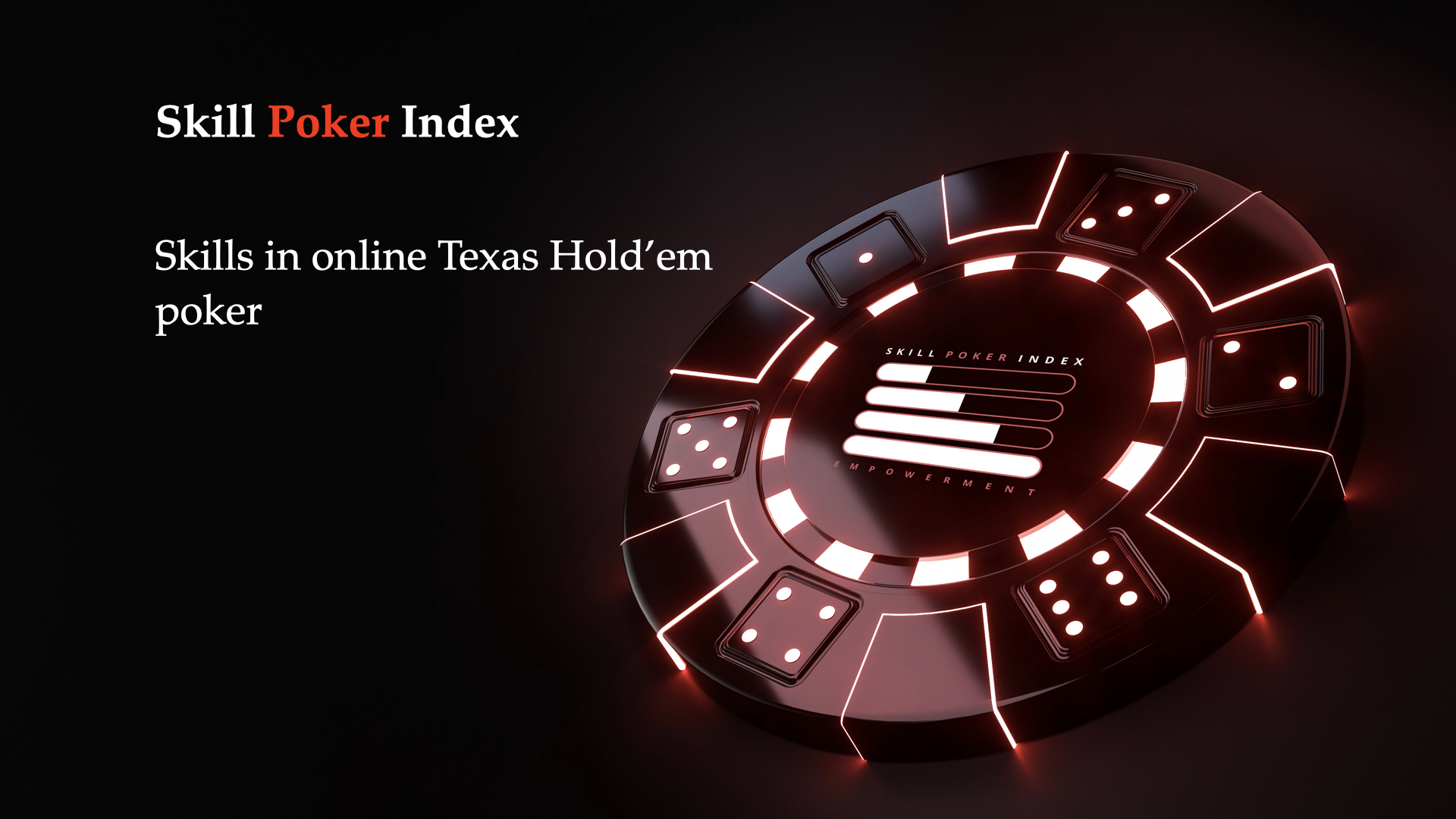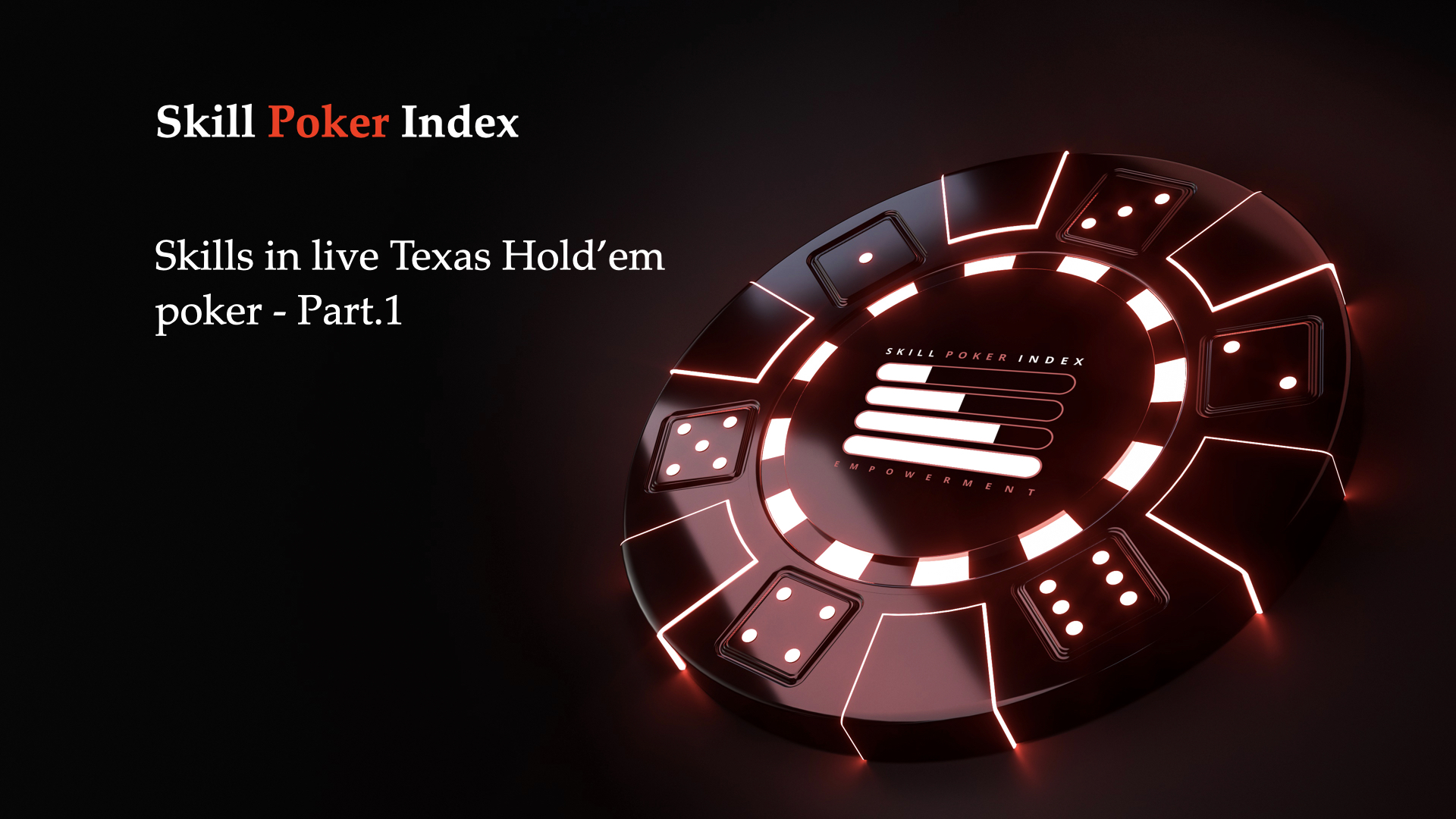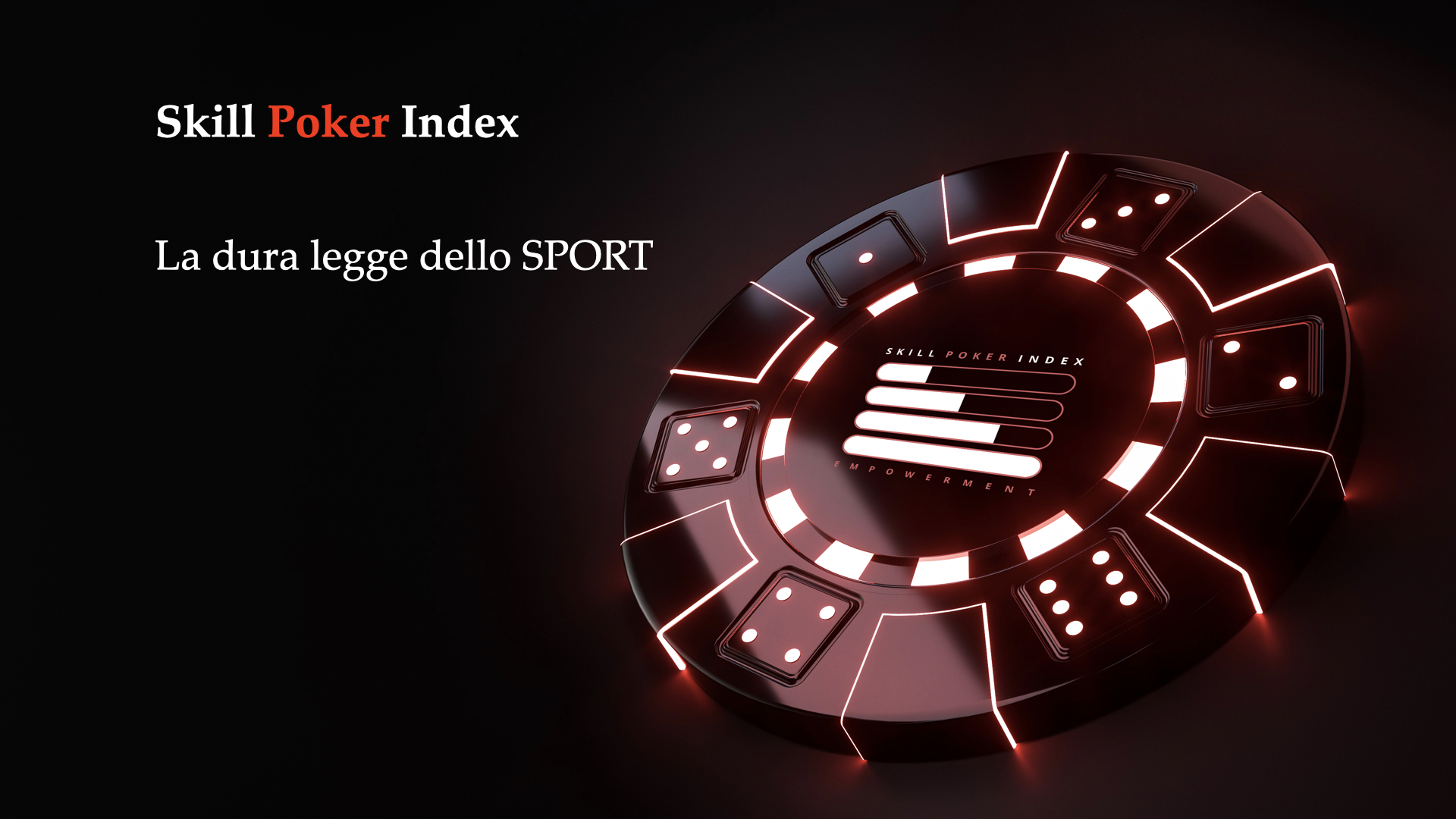Skill Poker index
Università Telematica “e-Campus”
Facoltà di Giurisprudenza
Corso di Laurea in Scienze della Comunicazione
Curriculum Digital Marketing
From game to sport. The enhancement of skills in the poker live cultural change.
Supervisor: Prof. Bonomi Sabrina
Degree Dissertation of:
Pietro Semeraro
Mat. 50655
Academic Year 2020/2021
ABSTRACT
In our country, the subject of the regulation of the poker discipline has been a subject of debate since the dawn of its practice, keeping the matter of skill at the heart of the debate. The diatribe between game of luck and game of skill has never encountered unanimous opinions (or at the very least dominant opinions) within the community. At the preliminary question, therefore, what is meant by skills in poker, can be defined by the comprehension level of quality, by the development and implementation of basic strategies and principles acquired by the single individual through empirical literature and/or experience. There is no evidence contesting that in the traditional game dynamics of the poker tournament it matters how profoundly one can know their own winning chances or how evolved the strategies are that one possesses to define one’s advantages against the opponents, taken into account in every section of the spot (played hand). This type of scientific knowledge is often considered useful to acquire greater awareness on the risks of ruin and to foster the development of new strategies in order to face the opponents in the long term. However, there is no evidence considering it sufficient to guarantee – structurally – that the winner of a spot or of a tournament can be the player that demonstrated using a greater amount of skills.
The scenario can be expanded if one considers that the same game dynamics produced a further negative effect in the popular culture in a way that, even if a player of notoriously known skills and recognized by the community as such, were to win a tournament (online or live), here too, – for this writer – after approximately a fifteen-year period of qualitative analytical observations carried out directly on-site (first from the prospective of a professional player and then from the prospective of authorized personnel), would be in any case considered as “particularly fortunate”. This is the reason why it is believed that in the poker environment, played live or online, to win the tournaments it is necessary to start at the back and win the shot until the end of the spot, at least twice throughout the entire session without, obviously, losing with the shots in which more often you would start with an advantage. With regard to the feasibility of the cultural change that this Degree Dissertation aims to understand, one can consider this period as the acceptance period.
In the poker live environment, as in the online, between the players there is a strong mono-prospective tendency to consider skilled a player with remarkable mathematical abilities in relation to the application and exploitation skills of the supplied softwares, utilised for the programmed quantitative analysis.
In actual fact, playing live tournaments is not the exact same thing as playing online tournaments. To be able to compete in the professional online poker field, it is extremely necessary that every player possesses great willpower, predisposition to studying and always acquiring new knowledge, logical-mathematical capacities and a wide knowledge of software data management and solver specific for the poker world.
The aim of this work is to understand whether and how to introduce new rules in the poker Texas Hold’em, for the purpose of a possible recognition as a skill sports discipline and how to find a formula that were to lift it from the gambling category, in which still remains considered.
The theme, for the writer, has been of great interest since 2008 managing firstly to unfold solely one part of the problem, whilst the scientific element that could have completed the process was still unaccounted for, i.e. intervening on the nature of the rough game structure and eliminating the aleatory component, primeval leverage emerged from the old social-economic paradigm which characterised the culture and society of its origins.
In this work it was considered possible trying to fill the gap and find a solution to the enigma.
The first chapter is the occasion to understand the analysis that the researcher conducted in identifying the adopted solutions. Building on the judicial, academic and dictionary definitions of “Sport” and on the characteristics that a discipline must present to be considered a skill sports activity, critical issues were identified. Criticalities that limit the poker Texas Hold’em in not being recognised the skill component which every athlete must demonstrate to own in order to excel on the opponents. The analysis process carried on in identifying the principal factors that influence the skills in poker, that is the Information acquired and the stack Magnitude. With the application of piecewise semantics the poker fundamental Theorem of Sklansky[1987] is revisited from a new perspective, stating the logic of the poker information completeness which is the basis of the Skill Index-Ia calculation for every phase of the spot; this would allow the discipline to be considered amongst the categories of skill sports activities, that is, the skills management in defining the result of the athletic performance. Identified in the all-in process, the principal criticality binding the discipline to the gabling category – produced in any phase antecedent the river phase – the skill index will establish a partial distribution of the pot, not basing on the probabilistic advantage recognized during the show–down phase, but in function of the skills involved by the single athlete in a given phase of the spot. All the logical-mathematical processes that allowed the measurement of such skills are presented, defining them as indexes for the intrinsic characteristic of information vagueness [Anolli, 2012], also inserting an applicative phase accompanied by the description of all the processes in every game condition.
The following chapters, III and IV, contain a case of study, which takes competitive advantage from the application of the new knowledge in the organisational sphere, describing a Digital Transformation process, with the adoption of the Social Enterprise Model to a structure dedicated to the production of live events and supported by the introduction of a Data Driven structure and the integration of digital systems conducting the productive activities. The complete description of every transformation process was presented (has been presented) -both from an organisational point of view with the indication of the new function roles, and from a strategical one based on Inbound and Content marketing methodologies- guided by the vision for the Champions Crew event of not being considered as a new competitor in the sector, but as a new contributor which, on a par with the other stakeholders, attempts to promote and spread the knowledge of the discipline from a cultural point of view and to contribute to power the entire economic industry. The presentation of the editorial plan and the description of the digital strategies adopted to launch and promote the event and the entire set of all the activities will close the paper.
The proposed evolutionary perspective, allows elaborating a professional version of the live discipline, developing the competitive dimension. The idea therefore is to realise a live tournament model of professional level, regulated and protected under the aegis of CONI; able to penalise decisions devoid of skill and enhancing those of skill, by proposing the introduction of indicators capable, in some way, of measuring the skills involved in the various phases of the spot – regardless of the actual concrete individual skills of the single athletes – universalistic-deterministic.
The integrity will be guaranteed by the possibility to bet all-in in every game phase, as for the original formula; whilst the overcoming of the encyclopaedic definition will be guaranteed by the introduction of the indicators, which, according to the game phase, will operate dynamically in relation to the skills involved in the respective game phases.
It can be asserted therefore that the skill index application of the new poker Texas Hold’em tournament model, proved to be an excellent influence modulation device of the two components padia and ludus – in favour of the latter – intrinsic to each game-sport activity, allowing to associate such discipline – in the live tournaments modality – on a par with the other olympic disciplines. Such Skills Index will in addition be capable of determining, through the elimination mechanism, the subject with the best performance of the entire agonistic competition.
The model shall be applied in all poker clubs, duly regulated, as integral part of a national championship.
Skill Poker Index, a concrete science-based contribution to the live Texas Hold’em poker regulatory theme
What if Poker needed new rules? I tried to give this answer with my research study, presented in May 2021...
What Skill Poker Index are?
Theories of communication vs maths in poker Last week I left you with a brief overview of the contexts within...
Game Definition vs poker Texas Hold’em
I have elaborated the Skill Poker Index according to a course of regulation of the discipline and it has been...
Gambling
After talking about the components of Caillois, which determine the random or skill nature of the games, today we will...
The critical issues underlying the current state of non-regulation of the live poker industry – Part.1
After the encyclopedic-legal definitions of game and gambling , today I would like to draw attention to the current state...
The critical issues underlying the current state of non-regulation of the live poker industry – Part.2
The observation of the critical issues underlying the current state of non-regulation of the live poker discipline has brought out...
The critical issues underlying the current state of non-regulation in the live poker sector – Part.3
The influence of variance in so-called “sports poker” in the final outcome of a live tournament In the last article...
Texas Hold’em poker Skills
At this point in the elaboration of the Skill Poker Index, it was necessary an in-depth analysis of what is...
Skills in online Texas Hold’em poker
From my long observation on the field I was able to frame online poker skills in two different cognitive paths,...
Skills in live Texas Hold’em poker – Part.1
Compared to online poker, participation in a live poker event the scenario is very different. Although in its scientific purity,...
Skills in live poker – Part.2
Thanks to the continuous face-to-face duels, Texas Hold’em live poker can be considered as the perfect arena for the empirical...
The hard law of Sport
From the theme of skills in live poker, today, I propose a reflection on the characteristics of sports disciplines compared...

